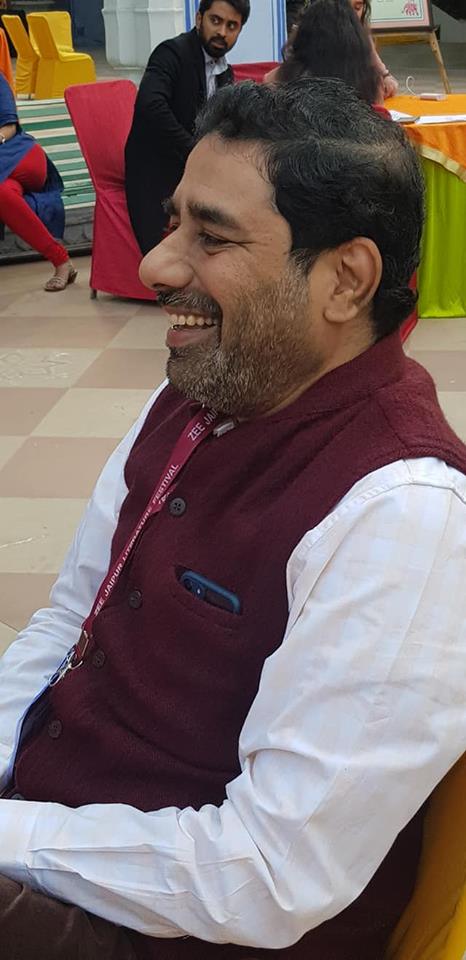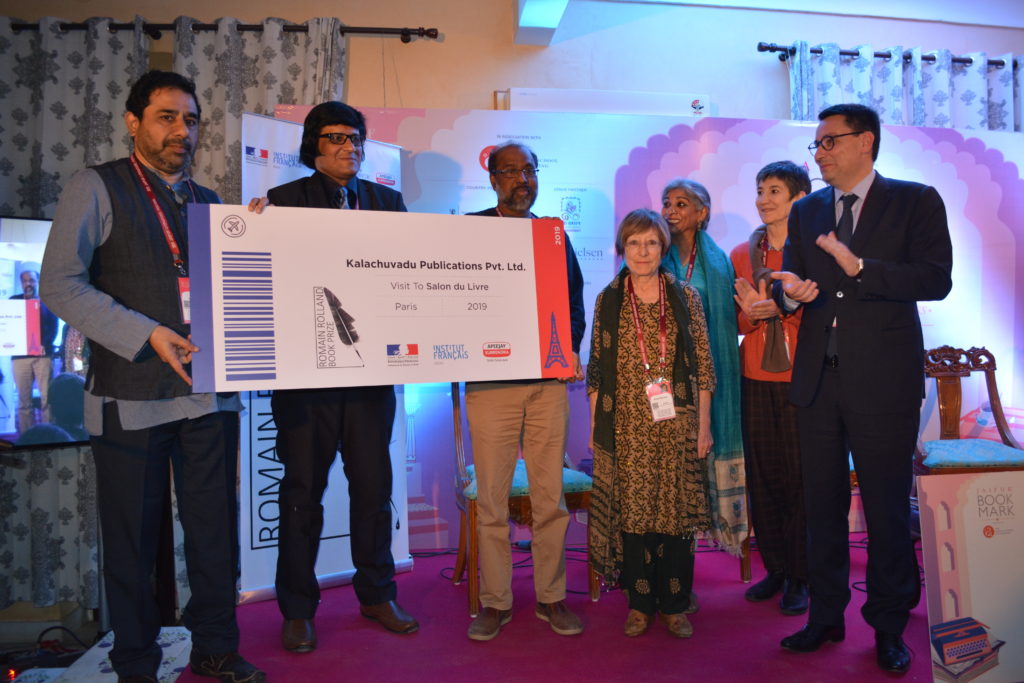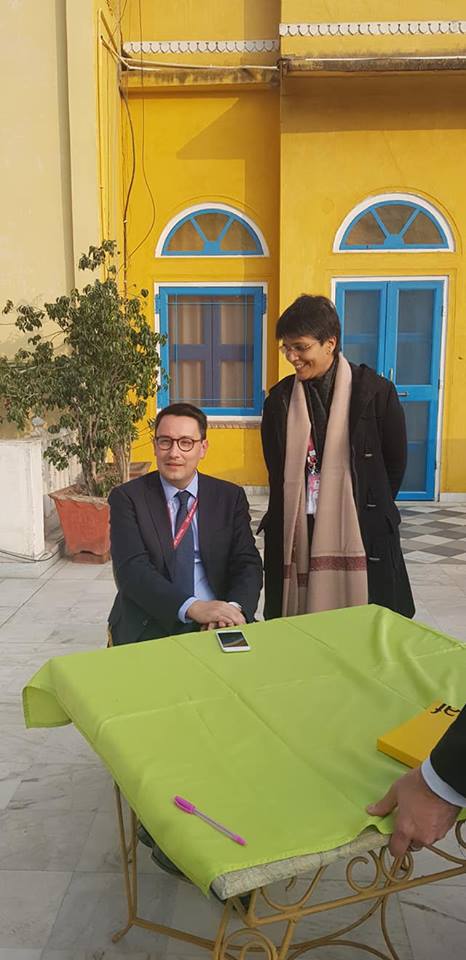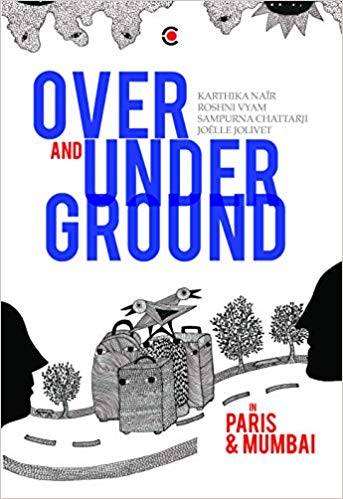Kannan Sundaram, Publisher, Kalachuvadu’s intervention on copyright at Jaipur BookMark, Jan 2019
Kannan Sundaram, Publisher, Kalachuvadu, was invited by Neeta Gupta, Founder, Jaipur BookMark, to participate in the JBM Copyright Roundtable.T
It was held at Diggi Palace and the keynote was delivered by Michael Healy. The other participants were Aditi Maheshwari Goyal, Alind Maheshwari, Arpita Das, Claudia Kaiser, Kannan Sundaram, Maggie Doyle, Michael Healy, Phillipa McGuinness, Prashasti Rastogi, Safir Anand and Urvashi Butalia, moderated by Naveen Kishore.
The cue given to the panelists by JBM was: Copyright underpins everything we do as an industry and without it all opportunities quickly recede. The principle of copyright is threatened at a global level and to a degree we have never seen before. This is true in India as it is in many countries. This session is a call to publishers, literary agents, rights managers, lawyers, authors and international book fair organisers for the protection of copyright.
Kannan Sundaram gave a short speech putting forth the concept of nationalising prominent Indian writer’s works rather than restricting them to a copyright life arguing that this had been done for Tamil poet Subramania Bharathy. Whereas in the case of Bengali poet Rabindranath Tagore the copyright period had been extended by a decade so that Visva-Bharathi University, the main benefactors of Tagore’s literary estate could continue to earn royalities for a few more years.

Here is the complete text of Kannan’s speech delivered at Jaipur BookMark. It has been published with permission.
****
Thank you JBM, Neeta Gupta for this opportunity to share my views.
I will be making a few remarks on copyright issues in Indian languages in general and Tamil in particular.
The premise of this panel that copyright is facing a threat in contemporary times is not entirely true of many Indian languages. I would not generalize the publishing context of all Indian languages. Every Indian language publishing has its own eco system. However, in most languages the adherence to copyright has never been strong.
I know that Malayalam market is an exception. There could be other languages where copyright is adhered to but that is not the overall picture of Indian language publishing. In Tamil copyright has been an option not a rule. It may have been extended to popular authors, authors who would fight it out, but not to most authors who had no clear understanding of copyright acts. In Tamil publishing adherence to copyright regulations is improving only now. Writers are fighting back using social media and prime time debates in television on copyright are happening. And there are publishers who appear on TV and argue why they cannot pay royalty!
While copy left is an idea and an aspiration for many in the world, in the state of Tamil Nadu it has been practiced legally in some instances for some decades now. This is a practice that is unique to the state of TN. So we have had an opportunity to access copy left in practice.
For over 60 years now the government of Tamil Nadu purchases copyright of an author by paying a lump sum money to the copyright holder and then puts it out in the public domain. This process is referred to as ‘nationalization’.
This practice was initiated after a controversy surrounding the rights of our national poet Mahakavi Subramania Bharathy. Responding to public demand that no one can own the rights of a poet who was perceived as belonging to the people, first the Tamil Nadu government bought the rights of Bharathy’s works in 1949. Then in the mid-fifties it was nationalized, that is gifted to the people. (If you want read this story I recommend the book ‘Who owns the Song?’ by A.R. Venkatachalapathy).
I would like to quickly compare this to the story of a nationally treasured writer Rabindranath Tagore. Visva-Bharathi University had an iron clad hold over Tagore’s copyright through the term and then succeeded on extending copyright for 10 years!
Following up on the new tradition established for Bharathy, various Tamil Nadu governments over the years have nationalized the works of over 130 writers. It started as a trickle and then became a sludge. When any of the governments in India decide to patronize culture, it usually starts well but the rot quickly sets in and then it typically goes to the dogs. What started as a process of national honour to outstanding personalities of Tamil literature has now gotten entangled in nepotism, patronage and corruption. I would not be able to recognize the names of a quarter of the nationalized writers!
What are the pros and cons of this nationalization process?
Most Tamil writers do not bother to assign copyright when they create a will for their belongings and property. It not valued by them or their families since it typically brings in little money. Therefore, posthumously it often becomes complicated for any publisher that wants to publish them. Nationalising a writer’s works clearly this all up nicely. The family gets some money and the publishers are free to publish the works. This as far as I can see is the only pro of this process. The honour is not there anymore since writers are nationalized with little discrimination.
The cons are many.
- If it is a bestselling author, there is a price war between publishers undercutting quality of the books published drastically.
- Most of the books of authors that have been nationalized remain out of print. This obviously is because their works are not valued turning the process of nationalizing their works irrelevant. Also if the author is a slow and steady selling, thena publisher with exclusive rights might do limited editions but when there exists the possibility that somebody else too might publish it and eat into the limited market, then there is little initiative to publish it.
- When copyright goes, no one exerts moral rights of work. This may not be the legal position but that is how it works in practice. This means publishers take liberties with the text. They feel free to edit, delete, change, condense and adapt the text in any way they like.
One publisher who publishes only nationalized books dedicates all the books to his mother. After sometime this publisher realized that the readers do not understand that he is dedicating all the books to his mother but wrongly assume that all writers are dedicating their books to their own mothers. So now the dedications are accompanied by photographs of his mother! A very commendable sentiment but ethics of it is debatable. Since no one can represent a nationalized book or can sign a contract, essentially any possibility of translation becomes very slim.
Thank you!
3 Feb 2019





